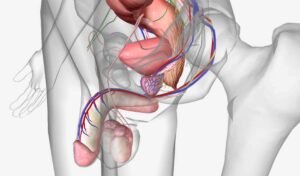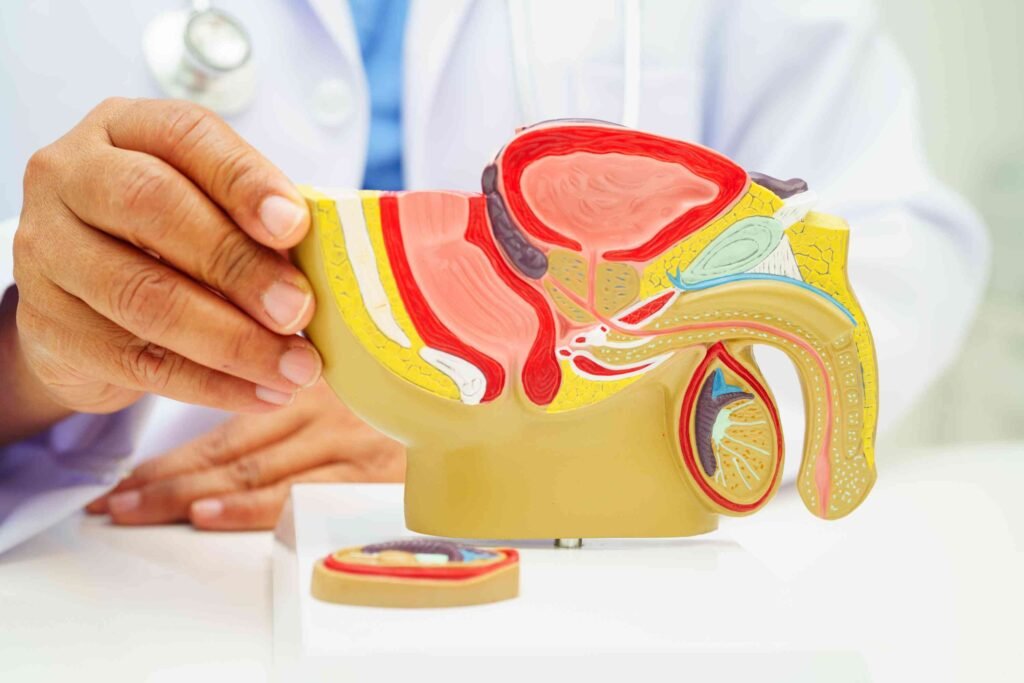How Varicocele Affects Male Fertility?
If you and your partner have been trying to conceive without success, and you’re wondering what could be standing in the way, you’re not alone. Fertility challenges affect millions of couples worldwide, and interestingly, male factors contribute to nearly half of all cases. One condition that often flies under the radar but can play a significant role in male infertility is varicocele. So let’s get into the heart of the matter: How does varicocele affect male fertility?
This might not be a dinner table topic, but it’s an important one—especially if you’re navigating the world of reproductive health and hoping to expand your family.
What Is a Varicocele?
Before we dive into how varicocele affects male fertility, let’s first break down what a varicocele actually is. Picture this: Just like varicose veins that appear in the legs, varicoceles are enlarged veins in the scrotum, specifically in the pampiniform plexus—a network of veins that help regulate the temperature of the testicles.
Normally, blood flows through these veins efficiently. But in a varicocele, the valves in the veins don’t work properly, causing blood to pool and the veins to swell. Think of it as traffic congestion in your scrotum. Not exactly ideal conditions for sperm production, right?
Varicoceles are surprisingly common, affecting around 15% of all men and up to 40% of men evaluated for infertility. Yet many guys don’t even know they have one until they’re actively trying to conceive and hit a wall.

Signs You Might Have a Varicocele
A lot of men walk around with a varicocele and have no idea. That’s because many cases are asymptomatic—no pain, no visible signs, nothing. But when symptoms do show up, they might include:
- A dull, aching pain in the scrotum (especially after standing or physical activity)
- Swelling or a lump in the scrotum
- Visibly enlarged or twisted veins (described as a “bag of worms” appearance)
- Reduced testicle size on the affected side
Even if you feel perfectly fine, it doesn’t mean everything is functioning as it should down there. This brings us to our main point: How does varicocele affect male fertility?
How Varicocele Affects Male Fertility?
Now we’re getting into the real meat of the topic. The short answer is this: varicoceles interfere with sperm production and function. But how exactly?
1. Increased Scrotal Temperature
Sperm like things cool. That’s why the testicles hang outside the body—to stay a few degrees cooler than core body temperature. When a varicocele forms, blood pools in the veins, raising the local temperature. Even a slight increase can negatively affect spermatogenesis—the process of making sperm.
This thermal stress disrupts the delicate balance needed for healthy sperm development. Over time, this can lead to lower sperm count, poor motility (how well sperm swim), and abnormal morphology (sperm shape).

2. Oxidative Stress
Varicoceles are associated with an increase in reactive oxygen species (ROS)—unstable molecules that damage cells. Excessive ROS can lead to oxidative stress, which is bad news for sperm. It damages the sperm’s DNA, weakens their membrane, and basically reduces their chances of successful fertilization.
This is one of the lesser-known but critical ways how varicocele affects male fertility. You could have sperm present in your semen, but if they’re damaged at the molecular level, they’re not doing much good.
3. Hormonal Imbalance
There’s also evidence that varicoceles can mess with your hormone levels. The increased heat and oxidative stress may impair the cells in the testicles that produce testosterone, as well as those involved in regulating sperm production. Testosterone plays a key role in sperm development, so when levels drop, fertility can suffer.
4. Anatomical Disruption
On a structural level, varicoceles can disrupt the normal anatomy of the testicles and the vasculature around them. This may compromise blood flow, nutrient delivery, and waste removal—each of which is essential for keeping sperm production on track.

Diagnosing a Varicocele: What to Expect
If you suspect something might be off, the best thing to do is see a urologist or a fertility specialist. They’ll typically do a physical examination, possibly followed by a scrotal ultrasound. The ultrasound can confirm the presence of a varicocele and assess its size and impact.
Doctors grade varicoceles on a scale of 1 to 3:
- Grade 1: Small, only detectable with a Valsalva maneuver (like bearing down).
- Grade 2: Medium, felt without bearing down.
- Grade 3: Large, visible even without touching.
The larger the varicocele, the more likely it is to affect fertility—but even smaller ones can have an impact.
Can You Still Get Someone Pregnant With a Varicocele?
Yes, absolutely. Having a varicocele doesn’t mean you’re infertile—it just increases the risk of fertility problems. Many men with varicoceles go on to father children naturally. However, if you’ve been trying to conceive for over a year with no luck, and a varicocele is present, it’s worth considering your treatment options.
Treatment Options: Reversing the Damage
Now that we’ve unpacked how varicocele affects male fertility, let’s talk about what can be done about it.
1. Varicocelectomy (Surgical Repair)
This is the most common and effective treatment. It involves tying off or removing the problematic veins so blood can reroute through healthy ones. It can be done through open surgery, laparoscopy, or a microsurgical approach (which has the highest success rate and lowest complication risk).
Post-surgery, many men see improvements in sperm count, motility, and morphology within 3–6 months. And yes, pregnancies happen too—either naturally or with the help of assisted reproductive technologies.
2. Embolization
A less invasive procedure where a radiologist inserts a catheter and blocks off the faulty veins using coils or a solution. Recovery is quicker, but success rates vary depending on the technique and the individual case.

3. Lifestyle and Supplements
While surgery is the most definitive fix, you can support your fertility by:
- Reducing heat exposure (no hot tubs or tight underwear)
- Avoiding smoking and excessive alcohol
- Eating a balanced, antioxidant-rich diet
- Taking supplements like vitamin C, E, zinc, selenium, and CoQ10
These steps won’t cure a varicocele, but they can help mitigate the damage and support sperm health.
When to Seek Help
If you’ve been trying to conceive for a year (or six months if the female partner is over 35), and nothing’s happening, it’s time to speak to a fertility specialist. If a varicocele is found during the evaluation, and you have abnormal semen parameters or testicular discomfort, treatment may significantly improve your chances.
Understanding how varicocele affects male fertility empowers you to take action. Ignoring it won’t help—especially when so many effective treatment options exist.
The Emotional Side of Male Infertility
Let’s not forget the emotional toll. Struggling with fertility issues can be frustrating, isolating, and downright heartbreaking. There’s still a lot of stigma around male infertility, and many men suffer in silence.
If you’re facing this challenge, know that you’re not alone—and it’s not your fault. Getting evaluated and treated is a sign of strength, not weakness. It takes courage to face the issue head-on and take steps toward a solution.

Final Thoughts
To wrap it all up, how varicocele affects male fertility is a complex but well-understood issue. From raising scrotal temperature to triggering oxidative stress and hormonal imbalances, varicoceles can seriously impact sperm health. The good news? They’re treatable—and often with excellent outcomes.


